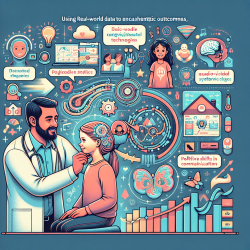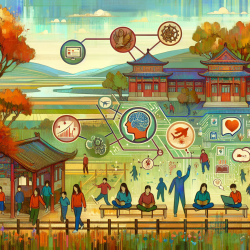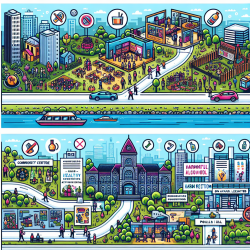Introduction
Resilience, a dynamic process characterized by positive adaptation in adverse contexts, is crucial in child development. The Child and Youth Resilience Measure (CYRM-32), originally developed in Canada, has been adapted to various cultural contexts, including a recent Spanish version. This adaptation, detailed in the study "Adaptation and Psychometric Properties of the Spanish Version of Child and Youth Resilience Measure (CYRM-32)," offers practitioners a robust tool for assessing resilience in Spanish-speaking at-risk youth.
Understanding the Spanish CYRM-32
The Spanish adaptation of the CYRM-32 involved a comprehensive three-study mixed-methods design, ensuring cultural relevance and psychometric robustness. This process included:
- Study I: Translation and factor analysis of the original CYRM-28, involving 270 Spanish adolescents.
- Study II: Qualitative interviews with resilient adolescents and experts to refine items for cultural relevance.
- Study III: Validation of the CYRM-32's psychometric properties with 432 at-risk youth.
The result is a 32-item scale with three factors: Family Interaction, Interaction with Others, and Individual Skills, each demonstrating strong reliability (Cronbach’s α total scale 0.88).
Implications for Practitioners
Practitioners can leverage the CYRM-32 to better understand and support resilience in Spanish-speaking youth. The scale's validation highlights the importance of cultural context in resilience processes, offering insights into how individual, relational, and community factors contribute to resilience.
Key takeaways for practitioners include:
- Cultural Sensitivity: Recognizing the role of cultural context in resilience can enhance intervention strategies.
- Holistic Assessment: The CYRM-32's multi-dimensional approach provides a comprehensive view of resilience, aiding in tailored interventions.
- Data-Driven Decisions: Utilizing validated tools like the CYRM-32 ensures that interventions are based on reliable data, improving outcomes for at-risk youth.
Encouraging Further Research
While the CYRM-32 offers a solid foundation, further research can explore its application across diverse Spanish-speaking populations. Practitioners are encouraged to contribute to this growing body of knowledge, ensuring the tool's continued relevance and effectiveness.
Conclusion
The Spanish CYRM-32 is a valuable asset for practitioners working with at-risk youth, providing a culturally adapted and psychometrically sound measure of resilience. By integrating this tool into practice, professionals can make informed, data-driven decisions that enhance child development outcomes.
To read the original research paper, please follow this link: Adaptation and Psychometric Properties of the Spanish Version of Child and Youth Resilience Measure (CYRM-32).










